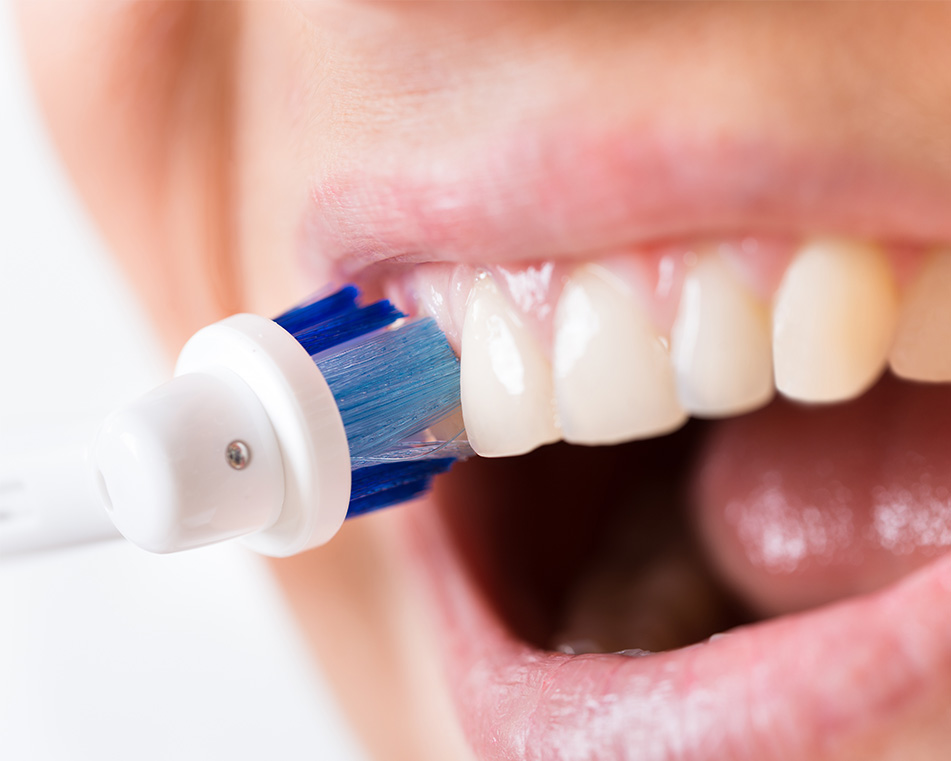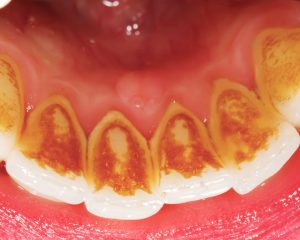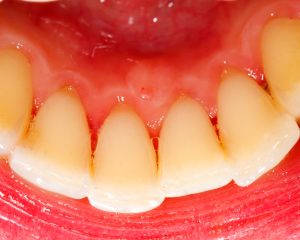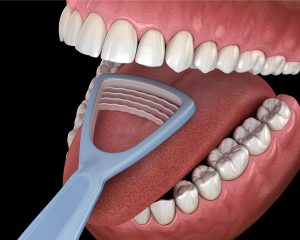Halitosis
Halitosis (bad breath) is a common complaint amongst patients. There are many possible causes of bad breath, ranging from dehydration, dietary choices, mouth-drying medication, chest infections or acid reflux. However, around 90% of cases are due to poor oral hygiene, periodontal (gum) disease, coating on the tongue, food stuck between teeth, unclean dentures, faulty dental work or throat infections. During lockdown, many patients have neglected going to the hygienist. Those close to them have started commenting on their less-than-ideal oral odour that has developed that no amount of mouthwash can mask or eliminate.
Seeing your dentist and hygienist regularly is the most important factor in correctly diagnosing the cause of the problem.
Dental bacterial plaque
The leading cause of bad breath is poor oral hygiene. If we do not brush and floss our teeth thoroughly, including in between the teeth, then this leaves behind a sticky layer we call dental plaque. This plaque is the accumulation of bacteria held together with saliva, fluid, food deposits sticky chemicals produced by the bacteria themselves. The levels of bacteria grow throughout the day, and over a prolonged period of time there can be as many as 600 different types of bacteria present in the oral cavity. Bacteria also produce pungent chemicals called volatile sulphur compounds (VSC’s) that are detectable as halitosis. Plaque grows at the gumline of the teeth but can extend over the whole tooth and extend under the gumline causing gum disease and deep pockets that harbour even more bacteria.
Your mouth is at a continuous temperature of 35-37 degrees which allows plaque to grow rapidly. In fact, bacterial plaque starts to become visible after 12 hours, which is why we brush our teeth twice daily. By brushing every 12 hours, you are breaking that cycle of bacteria growing and building itself into a developed layer of plaque.
Plaque that is left then mineralises into calculus (tartar) that has a rough and porous surface that harbours and encourages the growth of even more bacterial plaque volume.
Thorough professional cleaning to remove these deposits from above and below the gum very regularly (we advise 4 times a year) is the single simplest way to avoid gum disease and to prevent plaque maturing into sufficient volume that can cause detectable bad breath.
We will also help you develop and hone your personal home care to ensure that your teeth and gums remain healthy between visits.
Hydration and tongue coatings
Hydration and drinking enough plain water throughout the day is important. Having a dry mouth means having less saliva which is important to dilute chemicals that cause bad breath and to neutralise the pH levels in our mouth. Having a dry mouth can also lead to a white coating on the tongue, which can also contribute to halitosis. If you notice that you have a white coating on your tongue, ensure you are drinking enough water, not just tea and coffee! Ideally adults should be consuming around 6-8 glasses of fluids a day.
If you have a good fluid intake but you still have a white coating on your tongue, then you may want to invest in a tongue scraper to remove it. Tongue scrapers can be found in large chemists and online.
If you are worried about halitosis, the most important thing you can do is to book an appointment with your dentist or hygienist, who will provide a personalised and tailored oral hygiene routine, to eliminate the cause, and get rid of halitosis.
Deteriorating dental work
Leaking dental work or older dentures also provide surfaces and nooks and crannies for bacteria to collect. If you have tried all of the above it may be that your dental work may need investigating or your dentures require professional cleaning and disinfection. We can also arrange this for you.
Whilst there are other causes of halitosis including chest infections or gastric problems, it is best to eliminate all possible dental causes first with your hygienist.
Come and let us treat and prevent bad breath before your partner, friends or colleagues have to tell you!




